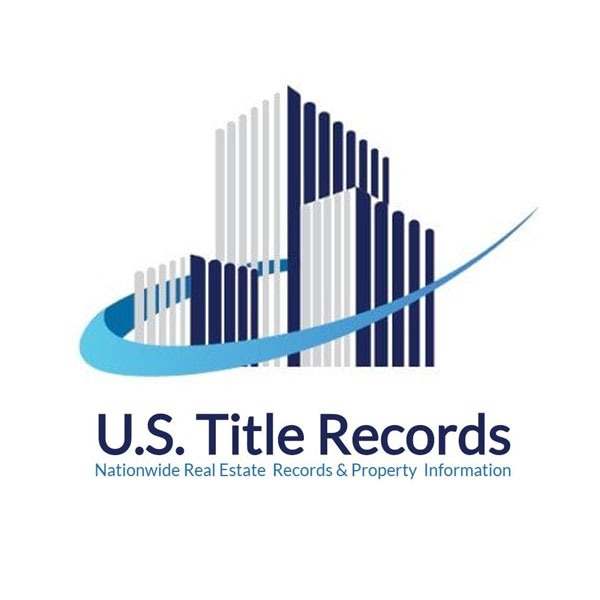Chain of Title Reports: A Comprehensive Guide to Property Transaction History
- January 31, 2024
- Posted by: Dre B.
- Categories: Lien And Title Search, Posts, Property Records, Property Records Search, Property Title Search, Public Property Records, Real Estate, Title Companies
Chain of Title Reports: A Comprehensive Guide to Property Transaction History
What Is a Chain of Title Report?
A chain of title report is a comprehensive document that outlines the complete history of ownership and property transfers for a specific real estate asset. According to the American Land Title Association, these reports are essential components in the due diligence process during property transactions, providing crucial information about previous owners and any potential encumbrances that might affect ownership rights.
Key Components of a Full Chain of Title Report
U.S. Title Records provides a thorough 30-year chain of title abstract that includes detailed information on sales, liens (both voluntary and involuntary), mortgages, assignments, UCC filings, judgments, and the complete conveyance and transfer history (grantor/grantee) for the subject property. As noted by the National Association of Realtors, these comprehensive reports are vital for ensuring clean property transfers.
Digitized Documentation Included in Your Report
Each chain of title report includes digitized copies of all vesting deeds, meticulously pulled from microfilm and microfiche at county recorder’s offices. These documents provide a chronological sequence of historical title transfers for the property (standard 30-year search) and complete documentation of ownership. The Consumer Financial Protection Bureau emphasizes the importance of having access to these historical documents for transparent real estate transactions.
Understanding UCC Filings, Liens, and Judgments
For UCC filings, liens, and judgments filed against specific individuals or business entities, U.S. Title Records offers specialized Individual Profile and Business Profile reports. The U.S. Securities and Exchange Commission explains that identifying these filings is crucial for complete due diligence in property transactions.
The Importance of Property Vesting Deeds
When selling property, the subsequent owner receives title and conveyance reflected in a property’s vesting deed demonstrating legal ownership. According to research from the Urban Institute, proper vesting documentation is fundamental to establishing clear chains of ownership.
Why Choose U.S. Title Records Over County Records Offices?
U.S. Title Records stands as the number-one ranked Property Title company, established nearly a decade ago. They provide comprehensive property record information for all cities, counties, and states throughout the United States. The company processes and delivers reports within 24 hours of purchase via email, offering significant time advantages over traditional county record searches that, as the National Association of Counties notes, can take significantly longer.
What Are Property Records?
Property records are official documents recorded and indexed by county recorder’s offices. These essential documents provide detailed information about specific pieces of real estate or land. Government agencies at the local level, typically county or municipal authorities, maintain these records. The U.S. General Services Administration outlines how these records contain critical details including ownership history, mortgages, lines of credit, legal vesting, property descriptions, tax assessments, liens, and other relevant information.
Benefits of Obtaining Property Records Online
Accessing property records online has become increasingly popular due to the convenience and efficiency it offers individuals, real estate professionals, and researchers. The Pew Research Center has documented the significant shift toward digital access for public records over the past decade.
Comprehensive Ownership History Documentation
One of the key components of property records is the detailed ownership history. These records meticulously trace the chain of ownership for a specific property over time, documenting when the property was purchased, sold, or transferred, along with the names of individuals or entities involved in each transaction. The Federal Housing Finance Agency highlights this information as invaluable for prospective buyers or investors seeking to understand a property’s background and assess its market value.
Legal Descriptions and Property Boundaries
Legal descriptions provide precise identification of property boundaries, dimensions, and location. Using a combination of survey measurements, landmarks, and reference points, these descriptions create accurate representations of physical boundaries. The American Society of Civil Engineers emphasizes that clear legal descriptions are crucial for preventing boundary disputes and related legal complications.
Tax Assessment Records and Property Valuation
Tax assessments constitute an essential part of property records. These documents detail the property’s assessed value for tax purposes, influencing property tax obligations. According to the International Association of Assessing Officers, online access to tax assessment records allows property owners to verify assessment accuracy and understand how value changes may impact tax liabilities.
Understanding Liens and Encumbrances
Property records also document liens and encumbrances. Liens represent claims against the property, such as mortgages, unpaid taxes, or other debts. The Federal Trade Commission recommends checking these records before purchasing property to identify existing liens and avoid potential legal and financial complications.
Advantages of Online Property Record Access
Online access to property records offers numerous advantages, with convenience and quick access being primary benefits. Historically, individuals had to visit government offices in person to access these records—a time-consuming process. The Digital Government Society has documented how digital access saves significant time and effort for all stakeholders.
Promoting Transparency in Real Estate Transactions
Online access to property records promotes transparency and accountability in the real estate market. By making records readily available to the public, governments foster a more open and ethical real estate system. The Transparency International organization identifies this transparency as particularly beneficial for ensuring fair practices within the real estate industry.
Conclusion: The Value of Comprehensive Property Records
Property records are crucial documents offering vital information about properties, including ownership history, current mortgage balances, legal descriptions, tax assessments, liens, and encumbrances. The ability to obtain these records online has revolutionized how individuals, real estate professionals, and researchers access and utilize this information. The convenience, transparency, and efficiency provided by online access to property records through services like U.S. Title Records make them an invaluable resource for anyone involved in real estate transactions or research.

Sources used: